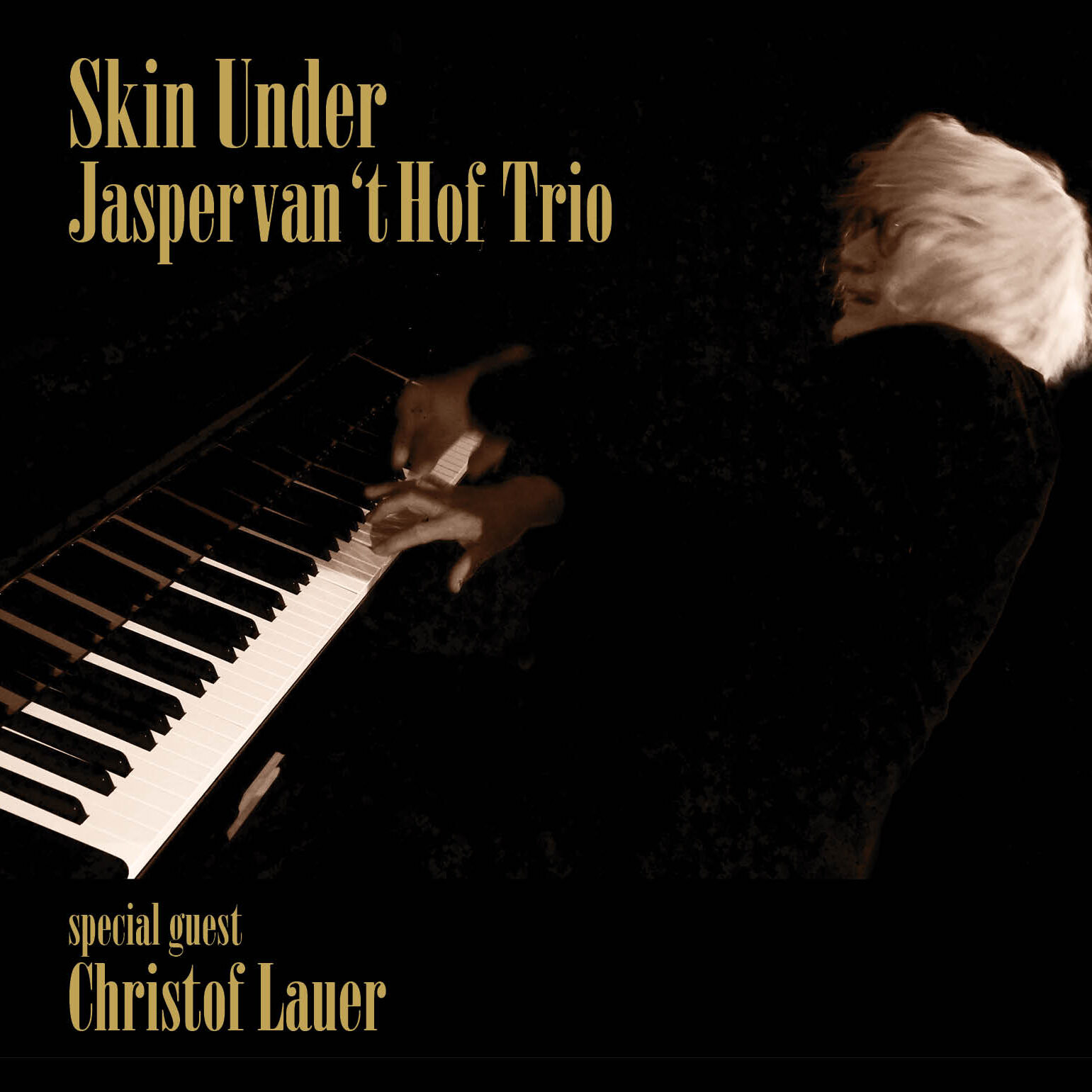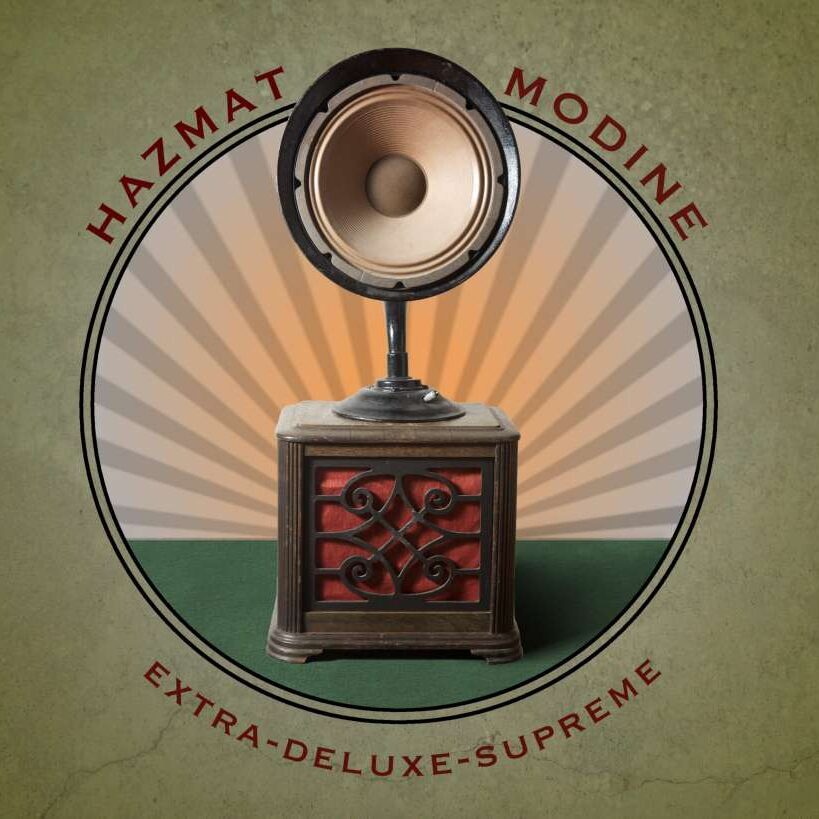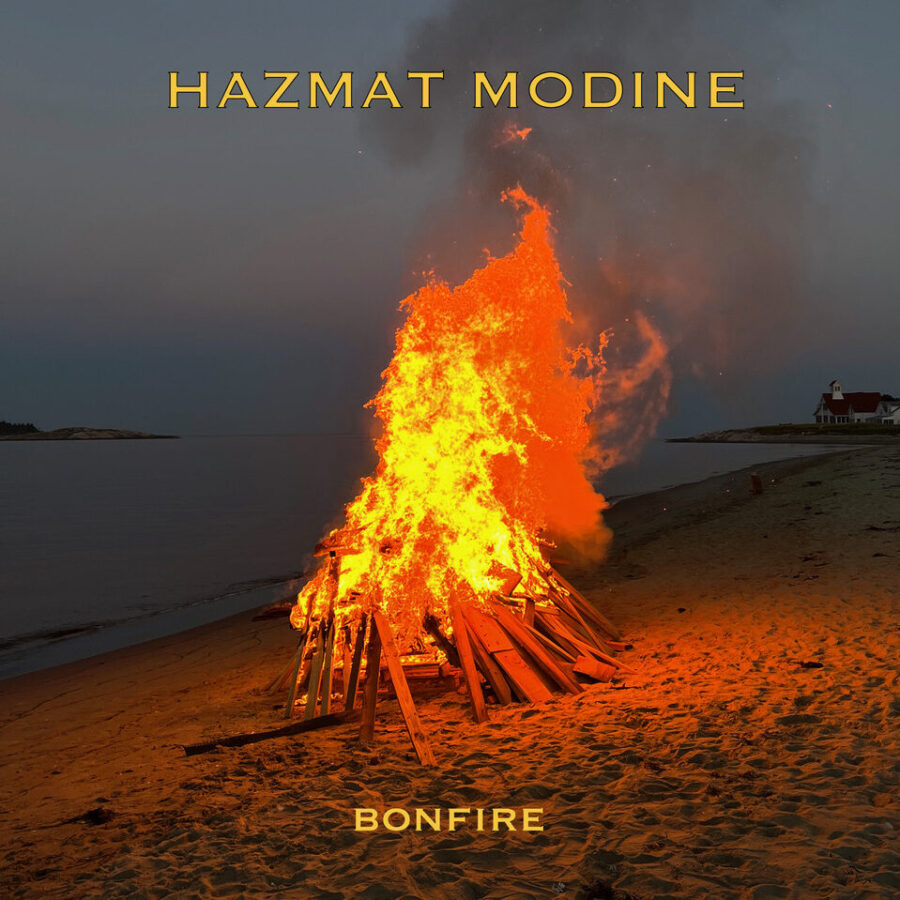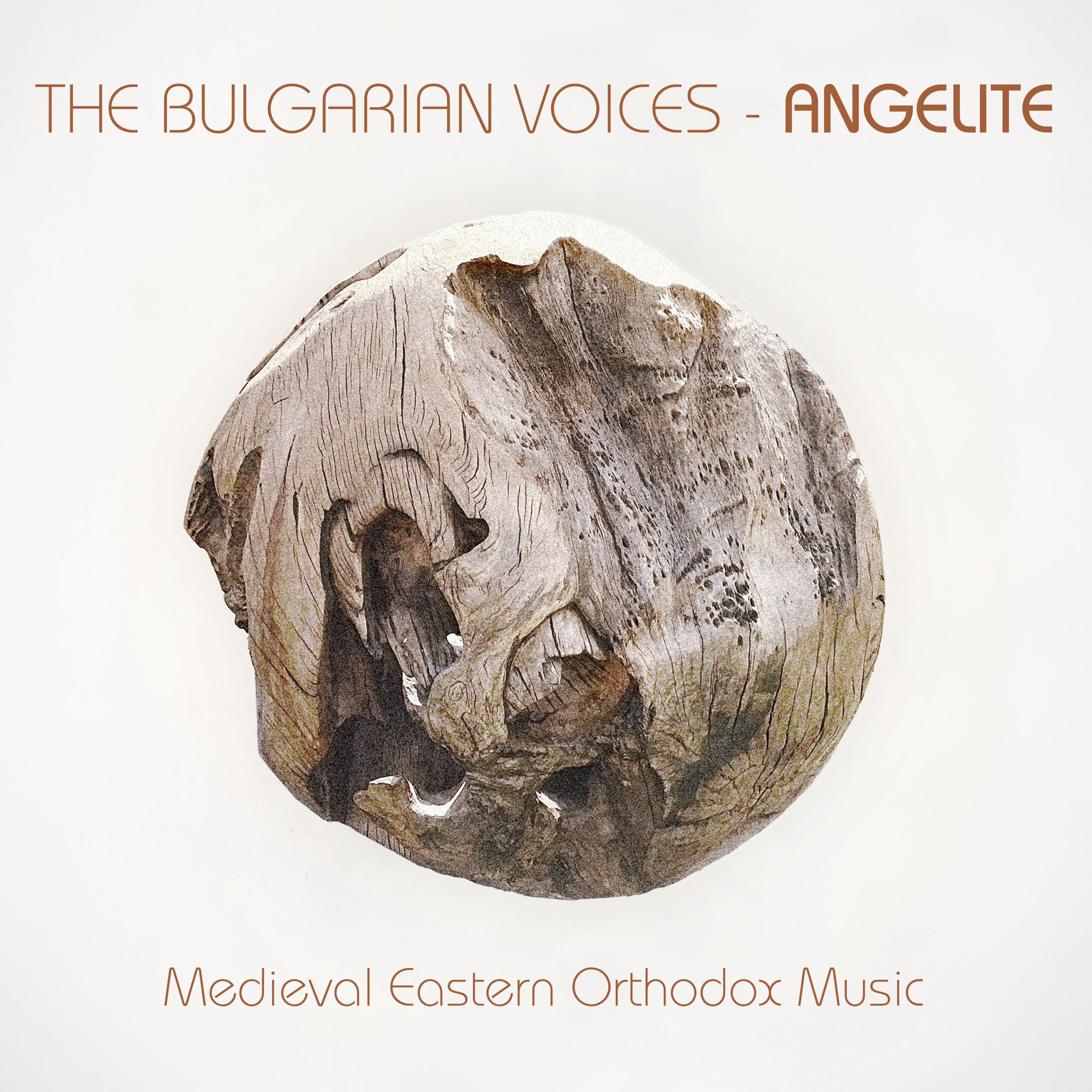Cicada
20,00 €
Four years in the works, Cicada marks the maturity of this fascinating collective- more cohesive and intuitive than ever. As original as Bahamut was, Cicada finds the band performing at a level only suggested on the debut.
[tabs style=”default”][tab title=”Preview”] [bandcamp album=1196175018 bgcol=FFFFFF linkcol=4285BB size=venti]
Short Info
Cicada is a feast of textures, atmospheres, hues and dynamics from an American music group with a planet’s worth of sounds at their fingertips. “Hazmat Modine: …this wild group led by the singer and harmonica player Wade Schuman. They play blues originals, mostly, that are the product of Schuman’s limitless imagination. His voice, for that matter, appears to be bottomless […] The singer and harmonica player Wade Schuman’s musical vision sounds like something out of Dr. Suess. His group augments Mr. Schumans own avant-blues styling with a contra-bass, a banjitar, tuba, flugel, trumpet, sheng and, most important, Tuvan throat singing. ” The New Yorker
[/tab][tab title=”Info”]
In 2011, the band released its sophomore CD, Cicada. Like that mysterious insect, who as a nymph lives in the earth surrounded by roots and then comes forth to sing, the music created by these eight accomplished and inventive musicians is earthy and at one with its origins, but suggestive of mysterious worlds beyond.
A pointer to Hazmat’s methodology can be found in the band’s configuration. Schuman’s guitar, diatonic harmonica and intensely earthy vocals set the tone. A solid battery of sounds — tuba, chromatic harmonica, trumpet, flugelhorn, trombone, tenor and baritone saxes, piccolo and duduk, mandocello and steel guitar — explores the textural and melodic outer limits of Hazmat’s meticulously woven compositions, while guitars and drums lock down a groove and provide sonic spicing.
That these musicians empathize with and enhance Schuman’s vision is a testament to their gifts. Each member of Hazmat Modine is a virtuoso musician, but that virtuosity is never abused. All is performed in service to the song.
That becomes clear on Cicada, an ambitious and stunning statement that serves as the culmination of the growth and depth of the band. Among the album’s 14 tracks are two collaborative efforts with another innovative octet, the electrifying Gangbe Brass Band from Benin, as well as artistic alliances with the genre-bending Kronos Quartet and the popular American vocalist Natalie Merchant.
We are living in one of the golden ages of world music,” says Schuman. “Music is coming from all over, and this is reflected when you play festivals—you have musicians from everywhere: Africa, Asia, the Americas. The cross-fertilization is natural. It’s how musicians see and hear the world. We are in a period in which so many kinds of music have already been influenced by other kinds. Gangbe, for example, has absorbed so much of the Americas in its music: Latin, funk, jazz and, of course, the music from other countries in Africa. But we all relate because we have absorbed a lot of this too. When they play a song and you can hear the music of Dizzy Gillespie. It is as if you are having a conversation, or throwing a ball; we all know the points of reference but they come from our own experiences. It’s all connected, how they feel American music is reflected in how we hear African music and visa versa.”
Four years in the works, Cicada marks the maturity of this fascinating collective, more cohesive and intuitive than ever. As original as Bahamut was, Cicada finds the band performing at a level only suggested on the debut. Augmentation—steel guitar, cimbalom, strings, and found sounds gathered during the band’s travels in Indonesia, Slovenia, Amsterdam, Germany and Schuman’s own Harlem locale—adds richness to the core instrumentation, and the band’s vocal spectrum has widened due to personnel and creative flux. Now, we have a solid horn section that has been playing together since the last album came out; the power of a real horn section is something that has in some ways transformed the language of the band. And our three-part harmonies are, in a way, like another horn section. So the band is bigger, stronger and has a lot of power in its many unified voices.
Each song on Cicada is an integral component of the work as a whole. Among the tracks featuring guest artists, one standout is “Child Of a Blind Man”, co-written by Wade with the American author Elizabeth Gilbert and featuring Natalie Merchant and the Gangbe Brass Band — one of two songs on which Gangbe appears. Written on an Indonesian mountain road and constructed over an extended time on four different continents, it’s teeming with visual imagery: “Child of a blind man, dog behind the door, bees in a tin can, nails upon the floor/Eyes on a highway, keys beside a bowl, rain on a Monday, bones turned to coal.” The Gangbe Brass Band contributes their own vocals and horn arrangement to the song and the tune is a true collaboration borne out of a deep musical kinship.
The title track, “Cicada,” takes off via a spoken word soliloquy before veering onto an improvisational road paved by stop-time surprises and Ethiopian-influenced polyrhythms, though in the end, the song sounds completely American. The murder ballad “The Tide” turns a corner from uptempo Delta blues to invoke both Sudanese music and the American heartland “Mocking Bird” at first is almost peaceful, a gospelesque harmony and a lone, swampy harp setting up the melody. Progressively it intensifies, the drums raging, the guitar and tuba representing the helplessness of sleeplessness. “2:47” too deals with the racing thoughts of the still after-hours, in this case the culprit not a bird exercising its right to imitate but a wayward lover whose arrival home is long past due.
In addition to the Schuman-penned original compositions, Cicada also features three Hazmatized cover tunes that fit right in thematically, a testament to the band’s panoramic range: Louis Jordan’s menacing blues dirge “Buddy”, Frederick Knight’s 1972 R&B “I’ve Been Lonely For So Long”, and Irving Berlin’s “Walking Stick”. But these songs don’t sound anything like what you would expect; they have been reconfigured through the soul of Hazmat, a context all its own.
Cicada is a feast of textures, atmospheres, hues and dynamics from an American music group with a planet’s worth of sounds at their fingertips. “I don’t hold to any orthodoxy,” says Schuman. “I’m not trying to make music that blends in with any scene; I just want to hear certain sounds. At the same time I do think we are a New York City band, because the eclectic nature of the band and its instrumentation is very New York. New York is one of the only places you can find, say, a great tuba player who can play Latin music or blues or rock, African or whatever—in short, a virtuoso who can sing in many voices. That reflects the city and the essential immigrant and mongrel nature of American culture, the beauty and soul of what it can be to be American.”
[/tab][tab title=”Videos”]
The promo video for Hazmat Modine’s second album.
httpv://www.youtube.com/watch?v=rTTvC8fVlCk
Official music video for the song “Mockingbird” from the album Cicada by Hazmat Modine. Film made by: Mattias Gordon
httpv://www.youtube.com/watch?v=HJ0MQhiz5e8
[/tab][tab title=”Promo Info”] [gview file=”http://www.jaro.de/wp-content/uploads/2012/09/Hazmate-Info-2011e_lowres.pdf” save=”1″] [/tab][/tabs]




